The e-Asia-Europe Meeting (e-ASEM) Research Network 1, together with the University of the Philippines Open University (UPOU) through the Faculty of Management and Development Studies’ Master of Public Management (MPM) Program, held an international webinar on “The Future of Learning in Higher Education” on 30 June 2021 via UPOU Networks.
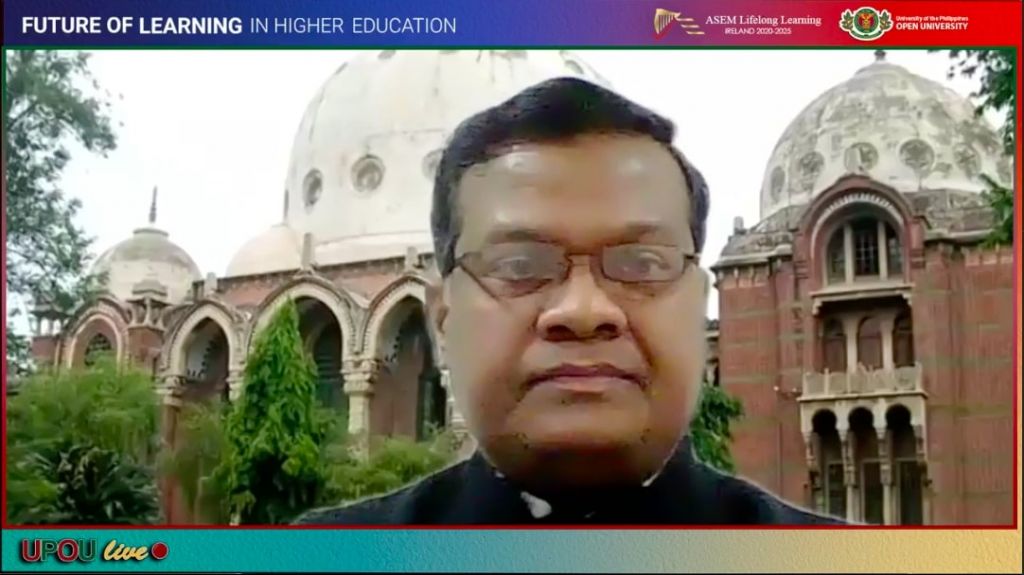
Dr. Karanam Pushpanadham, Professor from the M. S. University of Baroda (India) and the coordinator of e-ASEM Research Network 1 formally opened the webinar. Prof. Pushpanadham said that reconceptualizing knowledge, education and learning is a subject for global debate and that this shall be a common goal at all levels. He identified two roles of educators: to understand educational importance and to address the social issues surrounding such, therefore urging higher education to practice leadership and social responsibility.
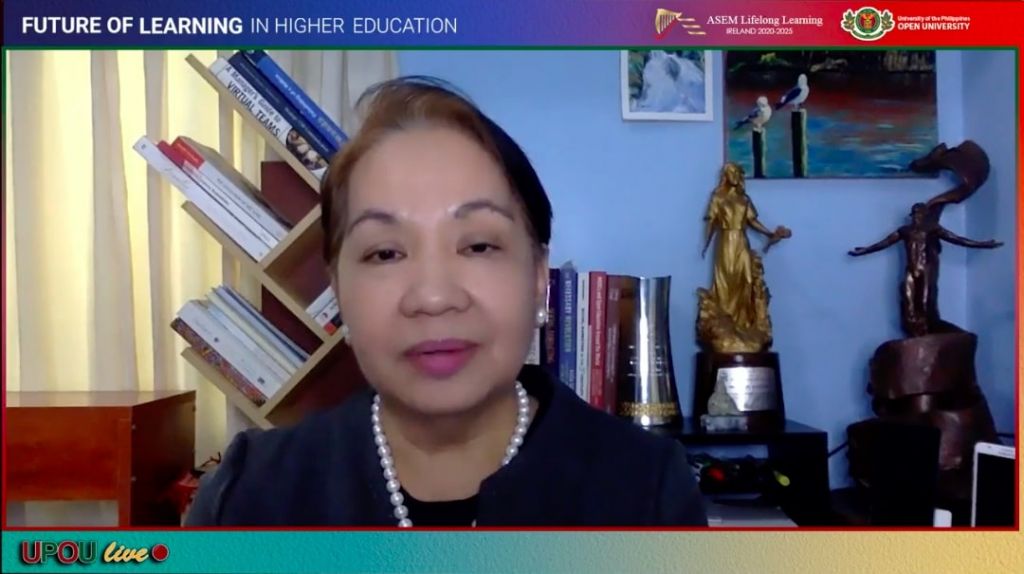
Dr. Melinda dP. Bandalaria, UPOU Chancellor also delivered a message. Chancellor Bandalaria mentioned the essence of meeting the needs of the learners, and knowing who they are. She added that the integration of information and communication technology in teaching can be both empowering and liberating for both educators and students. At the end of the day, Dr. Bandalaria said that there are specific and concrete actions educators and scholars can take—all for an educational journey that will inspire students to lifelong learning.
This international webinar’s keynote speakers are prominent educators from notable institutions in Europe and Asia: Prof. Susan Robertson of University of Cambridge (United Kingdom), Dr. Libing Wang of UNESCO-Thailand, and Prof. Stephan Gerhard Huber of University of Teacher Education (Switzerland).
First off, Prof. Robertson discussed a classroom-free future of higher education, an avalanche of change that will sweep the system away. She asked, “Is there really a revolution in the making?” With the radical and dramatic change in education, Prof. Robertson said that all universities are pushed to rethink their learning frameworks.
Prof. Robertson noted that geo-politics foregrounds the need for higher education diplomacy in the same way that neo-nationalism does to global competences and the sustainable development goals in reimagining mobility. She added that the trade-off between knowledge security and democracy is also a challenge to universities. Prof. Robertson also noted that the digital platforms created by institutions might be in danger of value extraction. She then inquired, “To what extent will knowledge be free and higher education be able to hold on to the degree of openness in creativity and resourcefulness?
Prof. Robertson was followed by Dr. Wang. He said that policies and practices from countries have huge potential and thus need to be scaled up. In the new normal, Dr. Wang cited that supportive ecosystems for online learning must be put up. He added that since confidence in online learning is a major issue, quality infrastructure and user experience are crucial which include common e-learning portals and platforms, e-content development and supply of quality software.
Dr. Wang said that online and blended learning need to be integrated into institutional strategic planning, staffing and budgeting process which will then be molded in concrete internal templates, workflows and regulations.
According to him, course objectives, learning outcomes and modules of learning should be the same online or offline while modalities of delivery, pedagogical considerations and learning assessment and resources are different. Dr. Wang added that it should depend on the nature and needs of the programs and courses. He then urged institutions and educators to create accessible and supportive ecosystems for online learning as well as legalize, finance, regulate, empower and incentivize the ways forward.
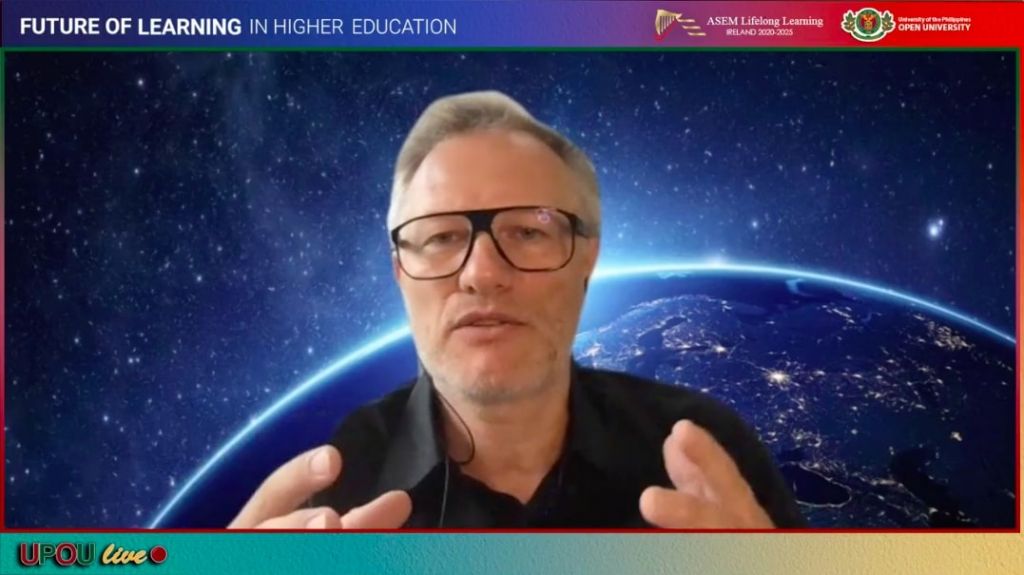 Finally, Prof. Huber noted that there is a question on whether universities are inclusive. He added that decades worth of challenges require the reinvention of HEIs. Thinking of the future of education, Prof. Huber saw the need for a balance in perspectives although it would not be an outright radical change but a step-by-step process.
Finally, Prof. Huber noted that there is a question on whether universities are inclusive. He added that decades worth of challenges require the reinvention of HEIs. Thinking of the future of education, Prof. Huber saw the need for a balance in perspectives although it would not be an outright radical change but a step-by-step process.
According to him, using digital learning shall be taken into consideration when crafting the university curricula and research strategies. Prof. Huber also mentioned that learning with technology allows individualization and interaction. Universities are mandated to not just transmit knowledge but translate knowledge, he added
Prof. Huber argued that the education sector will not go completely online but that there must be spaces in universities where people gather to question knowledge and answers in order to give rise to new questions. He cited that cultures of universities are different and so it must be taken into account when aiming for sustainability and innovation. There are many groups that might not have access to education and so Prof. Huber asked, “To whom are universities for and what are their purpose and aim for the future?”
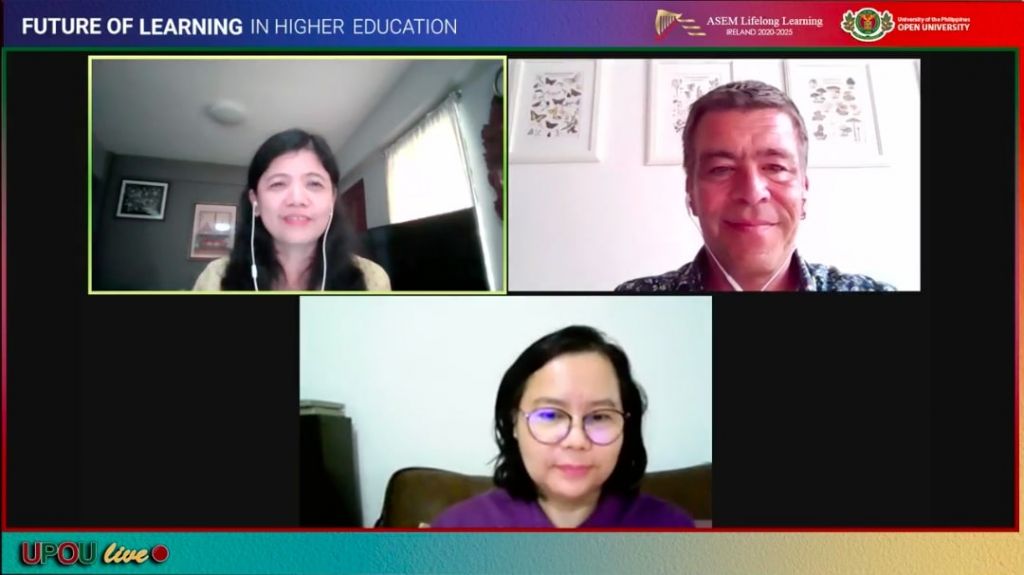 Prof. Juvy Lizette M. Gervacio, MPM Program Chair and Webinar Convener hosted the event while Prof. Jan Pawlowski, e-ASEM Coordinator-Europe and Prof. Jaitip Nasongkhla, e-ASEM Coordinator-Asia moderated the open-forum.
Prof. Juvy Lizette M. Gervacio, MPM Program Chair and Webinar Convener hosted the event while Prof. Jan Pawlowski, e-ASEM Coordinator-Europe and Prof. Jaitip Nasongkhla, e-ASEM Coordinator-Asia moderated the open-forum.
Written by Marian M. San Pedro • Edited by Larry N. Cruz & Primo G. Garcia

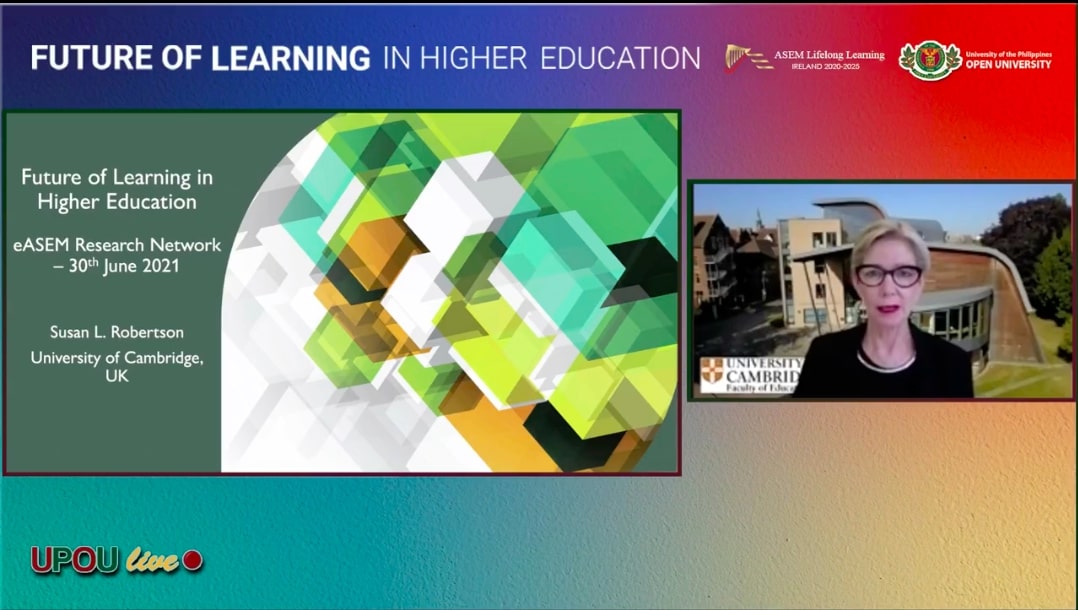

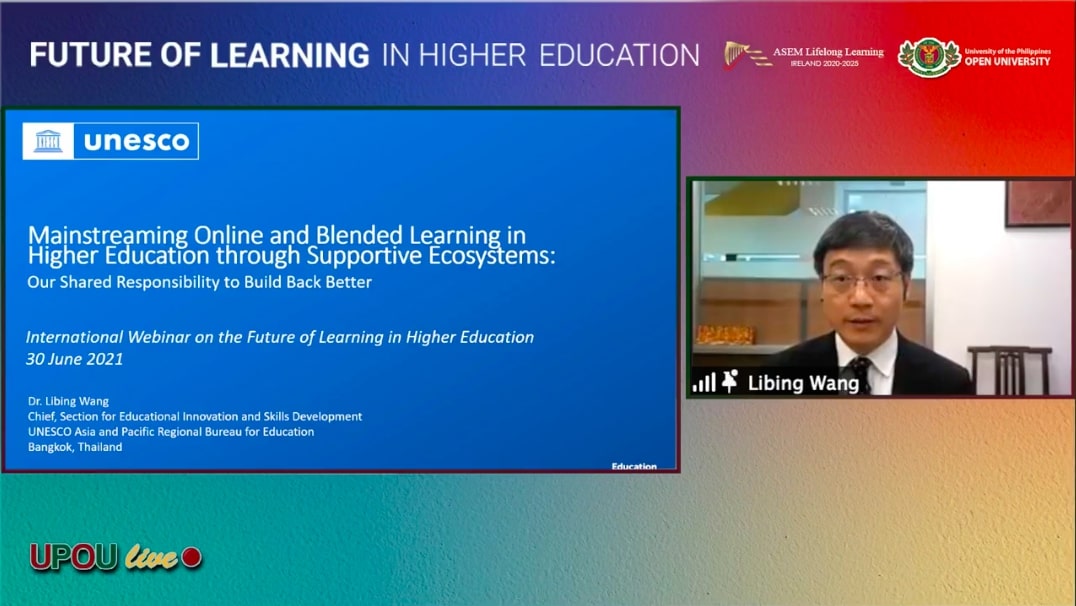
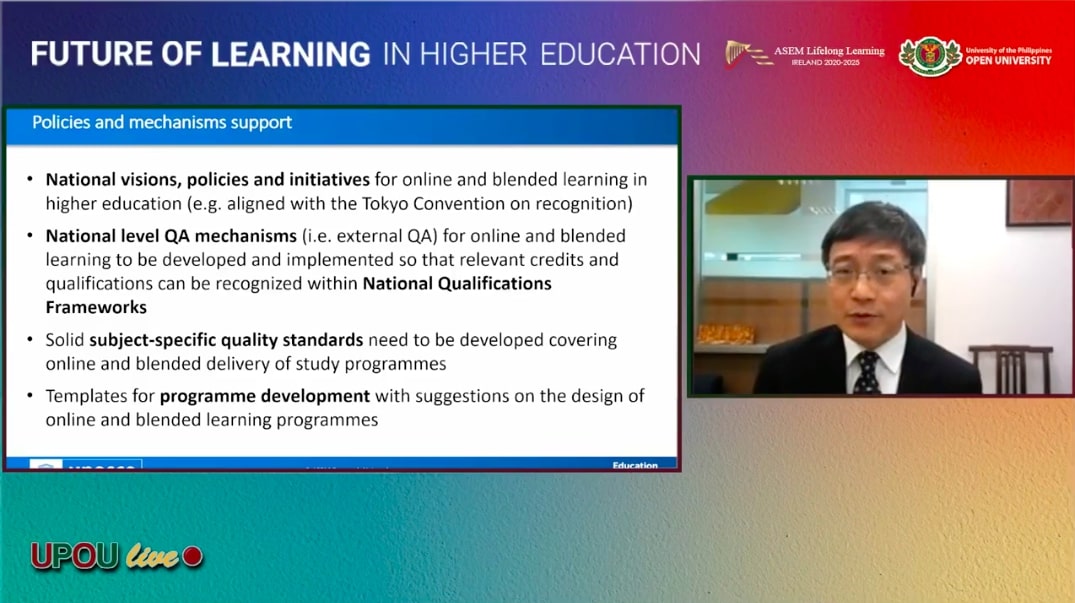

















FMDS Socials